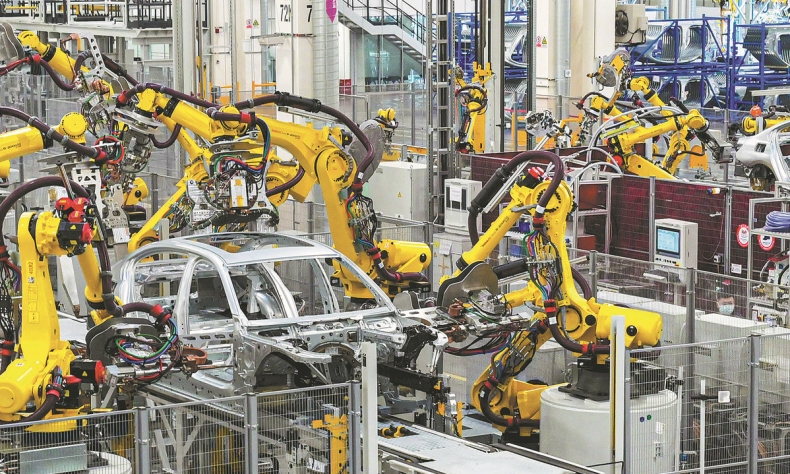Sino-EU Cooperation Brings Opportunities

If Europe is serious about its economy, then it must also be serious about China and cannot afford to engage in self-sacrifice any more to the detriment of its own prosperity and people in supplementation of U.S.-centric goals.
Chinese Premier Li Qiang recently conducted a trip to Europe, whereby he met with leading business representatives from Germany and France. He noted that the visits “boosted their confidence in the Chinese economy and plans to continue investing in China” and that “China’s development brings opportunities rather than risks to the world, sending stability rather than shocks to the global industrial chain and supply chain.”
Despite troubled geopolitical waters, it remains that China may be the greatest opportunity for European businesses and that its leaders must adopt a position of pragmatism which recognizes that, as opposed to engaging in ideological and strategic confrontation. Recently, the Eurozone area was confirmed to have entered a recession, and it is critical that both major economies work together in order to establish optimism for global growth, understanding that there is no way to doing so without China.
The United States has recently gone some way to try and assure Europe that it is not attempting to tear up the global economy and engage in so-called decoupling with China, despite many actions to the contrary. In the recent G7 summit, the U.S. adopted a new discourse known as “de-risking,” which claims it aims to “reduce strategic dependencies” but has nonetheless been clothed in the same language of geopolitical confrontation across a range of issues. The U.S. still nonetheless encourages Europe to take a harder line against Beijing, and certain commission leaders have gone some way to doing so.
From this, it is painfully clear that the United States has shown its unreliability as an economic partner for Europe. In goading the continent into geopolitical confrontation, the U.S. has sought to undermine or reverse European economic integration and the sources of its growth. This has been a primary driver of the economic problems across the continent today in the form of crippling energy prices, suppressed consumption, and soaring inflation. In doing so, the U.S. has never made any economic concessions to Europe in terms of its own market or trade provisions, but has sought to fill the vacuum it has engineered, such as in terms of energy, with its own products.

In this case, European leaders must wake up to the reality that the China-EU economic relationship, no matter what the circumstances, is indispensable. China and the European Union remain the two largest single consumer markets in the world, weighted in terms of their consumer base and spending power. As such, major companies in France and Germany, be it Airbus or Volkswagen, critically rely on the Chinese market as a source of growth where profits elsewhere have faltered.
In doing so, the European Union must be prepared to take seriously the agreements it has already made with China. One treaty that was “agreed in principle” at the end of 2020 was the Comprehensive Agreement on Investment (CAI), which will increase market access for European firms across a wide range of sectors. The United States has sought to drive wedges in between China and the EU to prevent the ratification of this treaty and manipulate geopolitics to oppose it, which is contrary to the national interests of both parties.
In this case, maintaining healthy, stable, and mutually beneficial economic ties must be a key tenant of China-EU relations. This does not mean the two countries cannot have disagreements, or different perspectives but it does mean that the relationship must be guided by pragmatism and not ideologically driven goals. If Europe is serious about its economy, then it must also be serious about China and cannot afford to engage in self-sacrifice any more to the detriment of its own prosperity and people in supplementation of U.S.-centric goals.
 Facebook
Facebook
 Twitter
Twitter
 Linkedin
Linkedin
 Google +
Google +







